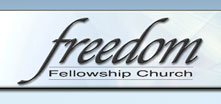

Homiletics - The Art of Preaching - Lesson 06
by Dr. Ray Self
Key Point Review
Click the play button to begin video lesson and follow along with the class notes below the video window. When you complete this video, click the "Lesson Assignment" button at the bottom of this page to open the lesson assignment.
Course Scripture - Romans 10:14 - How then will they call on Him in whom they have not believed? How will they believe in Him whom they have not heard? And how will they hear without a preacher?
Homiletics is the science and art of preaching.
Greek word for homiletics is homilia which means mutual talk, conversation or set discourse.
Preaching is the proclamation of the good news of the Gospel through man to man.
Each one of us is created uniquely by the Father. There is no other personality that can deliver your message as effectively as you can. That is why the Lord gave it to you.
Good motivations to Preach
- Love of God and love for His people
- Concern for the lost
- Concern for the immature
- Desire to serve
- Desire to build the kingdom of God
- Desire to give
The Four Main Types of Sermons
- Topical Sermons
- Textual Sermons
- Expository Sermons
- Types and Shadows Sermons
Sermon Preparation
Preparation means spending time with the author of the message.
Know the context of the chapter, the book, the testament, and the Bible.
Sources for Interpretation
- The text itself
- The context of the text
- Parallel passages
- Resources other than the text — Look at what others say about the text (i.e. commentaries, etc.).
Defining a Good Sermon
- "A good sermon is a sermon I can follow."
- "A good sermon is rooted in the Bible."
- "A good sermon changes me."
- A good sermon brings the Bible to life and makes it apply to the listener.
- A good sermon will be easily understood.
- A good sermon exalts the person of Jesus Christ.
Know when to stop. No one will complain about a sermon that is too short.
Know when to change directions by being sensitive to the leading of the Holy Spirit.
Critiquing a Sermon
Is there a definite message that is important to the listener?
Was the message clear?
Was the message biblically grounded?
Did the message touch the heart or just the intellect?
Was the message inspired by the Holy Spirit?
Study Questions:
- Why is homiletics defined as a science and an art of preaching?
- What is the primary message that Lord has given it to you? Please discuss.
- What touched your heart the most from this course?
- Discuss a good sermon that you have heard and what caused it to impact you.
Homiletics - The Art of Preaching - Lesson 05
by Dr. Ray Self
Critiquing a Sermon
Click the play button to begin video lesson and follow along with the class notes below the video window. When you complete this video, click the "Lesson Assignment" button at the bottom of this page to open the lesson assignment.
Critiquing a Sermon
Romans 10:14 - How then will they call on Him in whom they have not believed? How will they believe in Him whom they have not heard? And how will they hear without a preacher?
In this lesson we simply want to listen to the message as the volunteer students deliver their mini-sermons through our live web class format.
Preaching in this format can be challenging for the preacher so an extra dose of grace will be required.
What to listen and look for in tonight’s mini-sermons
- Is there a definite message that is important to the listener?
- Was the message clear?
- Was the message biblically grounded?
- Did the message touch the heart or just the intellect?
- Was the message delivered in an interesting way?
- What was the main point of the sermon?
- Was the message inspired by the Holy Spirit?
Study Questions:
- Which sermon touched your heart in tonight’s lesson and why.
- What did you enjoy about these volunteer sermons?
- Where you able to discern the difference between a topical, expository and type and shadow sermon? Please explain how each sermon met or failed to meet the criteria for a topical, expository or type and shadow sermon.
- What are your suggestions for improvement for each sermon given tonight?
Homiletics - The Art of Preaching - Lesson 03
by Dr. Ray Self
Preparing Your Sermon
Click the play button to begin video lesson and follow along with the class notes below the video window. When you complete this video, click the "Lesson Assignment" button at the bottom of this page to open the lesson assignment.
Remember the message you bring is vital to the hearers.
Preparation means spending time with the author of the message.
Preparation From a Text
Is the text figurative or literal?
Understand the meaning of words in their context.
Sometimes the writer himself will explain the word. For instance, see "faith" in Hebrews 11 and the word "perfect" in the following scriptures:
- Psalms 37:37 Mark the perfect man, and behold the upright: for the end of that man is peace.
- 1Chronicles 12:38 All these men of war, that could keep rank, came with a perfect heart to Hebron, to make David king over all Israel: and all the rest also of Israel were of one heart to make David king.
- 1Corinthians 2:6 Howbeit we speak wisdom among them that are perfect: yet not the wisdom of this world, nor of the princes of this world, that come to nought:
- Philippians 3:15 Let us therefore, as many as be perfect, be thus minded: and if in any thing ye be otherwise minded, God shall reveal even this unto you.
- James 1:4 But let patience have her perfect work, that ye may be perfect and entire, wanting nothing.
Understand the circumstance in which the text was written.
Compare scripture with scripture.
Seek to understand the manners and customs of the people to whom the Bible was originally written.
Sources for Interpretation
- The text itself
- The context of the text
- Parallel passages
- Resources other than the text — Look at what others say about the text (i.e. commentaries, etc.)
Theme
- Know the theme of the text thoroughly.
- Make sure the theme is one that listeners can understand.
- The theme should never be trivial.
- There should be a purpose in mind for the treatment of the theme.
- Do not choose a theme that you do not like, have not experienced, or are not living.
- The theme should be appropriate to the time, place, and occasion.
Gathering Material
A builder has his material on hand before he builds a home.
- What have you previously read or studied on the subject?
- What have you observed that can throw light on the subject?
- What have you ever thought on the subject? Practice taking notes of your daily thoughts.
- What have you gathered on the subject? What has the Spirit of God revealed to you?
Study Questions:
- Explain the difference between literal and figurative scriptures.
- Why is the context of the scripture important for proper interpretation?
- Why is the theme of the scripture important for sermon preparation?
- Discuss the most effective ways for you to gather material for your sermon.
Homiletics - The Art of Preaching - Lesson 04
by Dr. Ray Self
Defining a Good Sermon
Click the play button to begin video lesson and follow along with the class notes below the video window. When you complete this video, click the "Lesson Assignment" button at the bottom of this page to open the lesson assignment.
Romans 10:14 - How then will they call on Him in whom they have not believed? How will they believe in Him whom they have not heard? And how will they hear without a preacher?
Three Ways that People From the Audience Define a Good Sermon
A good sermon is a sermon I can follow. The main point of the sermon is clear. The sermon is well-organized. The preacher doesn't speak over my head. The preacher doesn't repeat the same point over and over. The preacher uses images, stories and ways of speaking that keep me listening and move me.
A good sermon is rooted in the Bible. It teaches me something from a text of the Bible. A good sermon is not the opinion of the preacher; it's a Word from God that has authority because it's from the Word of God.
A good sermon changes me. It challenges me to a deeper obedience. It stretches me. A good sermon brings me closer to God. It deepens my faith. It makes us a better church. A good sermon makes me a better, more loving person. A good sermon makes me a better kingdom citizen.
- A good sermon brings the Bible to life and makes it apply to the listener.
- A good sermon helps people hear from God.
- A good sermon will be easily understood.
- A good sermon exalts the person of Jesus Christ.
Helpful Elements of a Good Sermon
- Tell a story - use humor.
- Make an Argument: Example – The World view verses Biblical view.
- Solve a Mystery - 1Corinthians 13:12- For now we see in a mirror dimly, but then face to face; now I know in part, but then I will know fully just as I also have been fully known.
- Paint a Picture - Mark 4:30 -32 - And He said, "How shall we picture the kingdom of God, or by what parable shall we present it? "It is like a mustard seed, which, when sown upon the soil, though it is smaller than all the seeds that are upon the soil, yet when it is sown, it grows up and becomes larger than all the garden plants and forms large branches; so that THE BIRDS OF THE AIR can NEST UNDER ITS SHADE."
Make sure the sermon can be applied to the listener in practical ways that will impact their life.
Avoid theological talks that challenge the intellect but do not have practical applications for today. 1Corinthians 8:1 - Now concerning things sacrificed to idols, we know that we all have knowledge. Knowledge makes arrogant, but love edifies.
Know when to stop. No one will complain about a sermon that is too short.
Know when to change directions by being sensitive to the leading of the Holy Spirit. Romans 8:14 - For all who are being led by the Spirit of God, these are sons of God.
At your conclusion have a planned altar call. The Holy Spirit will confirm your message through altar ministry. Isaiah 55:11- So will My word be which goes forth from My mouth; It will not return to Me empty, Without accomplishing what I desire, And without succeeding in the matter for which I sent it.
Study Questions:
- Interpret and explain Romans 10:14.
- Define the key elements of a good sermon.
- Give another example other than Mark 4:30 in which Jesus painted a picture and discuss it.
- How can you increase your personal ability to be led by the Spirit when you are preaching?
Homiletics - The Art of Preaching - Lesson 02
by Dr. Ray Self
The Types of Sermons
Click the play button to begin video lesson and follow along with the class notes below the video window. When you complete this video, click the "Lesson Assignment" button at the bottom of this page to open the lesson assignment.
This lesson concerns the four primary types of sermons. It is important for the speaker to determine what type of message will work best for their audience. Each type of sermon has its advantages and disadvantages. Most preachers tend to specialize in one sermon type. It is however important for a student of the word to be familiar with all four types of sermons. God has a message for each particular audience and you can be the vehicle of that message. By understanding different sermon types you can be more effective in customizing your message for your listeners.
Topical Sermons
- The sermon is based on a particular topic (deliverance, love, forgiveness, giving, marriage, salvation, etc).
- The preacher will support his or her topic by referencing a number of scriptures from several books of the Bible.
- A case is built to convince the listener of his point by drawing from various scriptures.
- This method requires a lot of integrity from the preacher to be assured of not taking and using scriptures out of context.
- By cutting and pasting scriptures from various books of the Bible the speaker can manipulate the bible to make it agree with his or her point.
Textual Sermons
- The preacher reads a passage of scripture and draws a lesson from the text.
- Normally one or two verses are emphasized out of the text.
- The preacher may use several supporting scriptures from other areas of the Bible.
- Many times the preacher draws practical application from the text.
- For example – the preacher may read all of Psalms 23 but focus on the meaning of "still waters."
Expository Sermons
- A passage of scripture is preached verse by verse.
- The preacher may read the entire passage and then go back and preach on it or the preacher may read one verse then preach on it and the next verse and preach on it etc.
- This is a very effective form of preaching because the word in context has something for everybody.
- The preacher searches for revelation, illumination and application from each verse.
- Warning, illumination, and revelation are not addition to scripture.
- Normally this can be anywhere from several verses to an entire chapter.
Types and Shadows Sermons
The preacher uses the symbols of the Bible for his message.
For example -
- Moses - a symbol of Christ the deliverer
- Joseph - a symbol of Christ the provider
- The sacrificial land - a symbol of the crucifixion
- The Holy of Holies - a symbol of the presence of God in the believer
- The veil being rent - representing our right to enter into His presence
- Desert wanderings - representing our times of transition and equipping
- The Promised Land - representing all that God has for us in Christ
- David and Goliath – overcoming obstacles
- Nehemiah and the broken walls of Jerusalem – healing the broken hearted
- And hundreds more
Study Questions:
- Explain what a topic sermon is and give pros and cons. Why is integrity especially important with a topical sermon?
- Explain the term “textual sermon.”
- What is an expository sermon? Why is particularly effective.
- What is a type and shadow sermon? Give examples that are not listed in your Dr. Self’s class notes.






